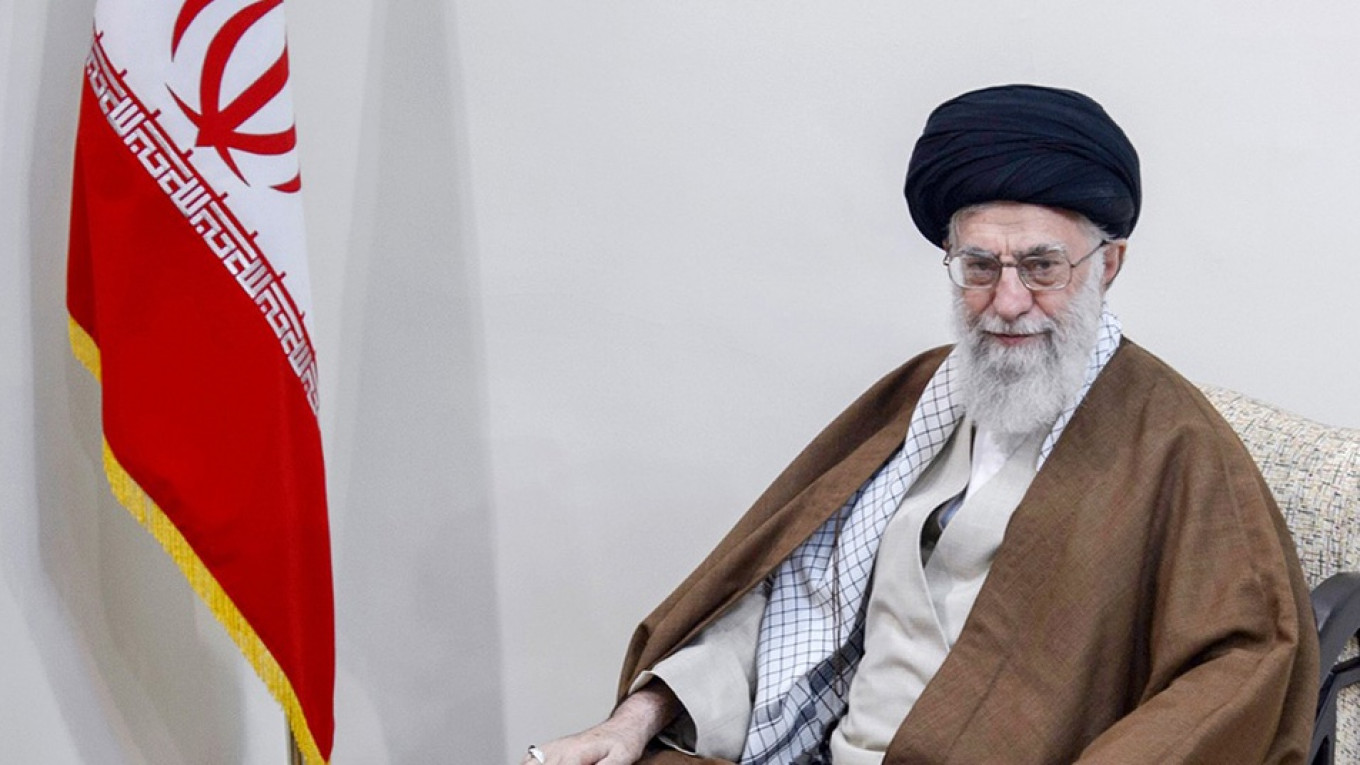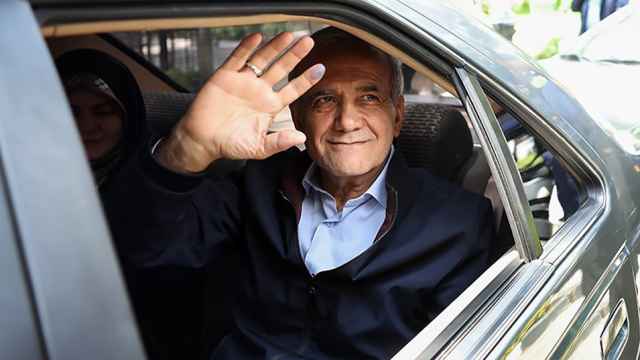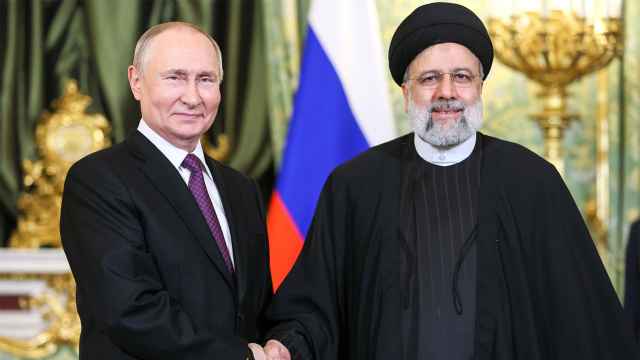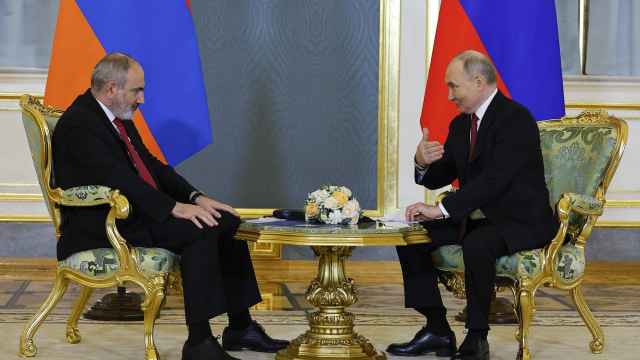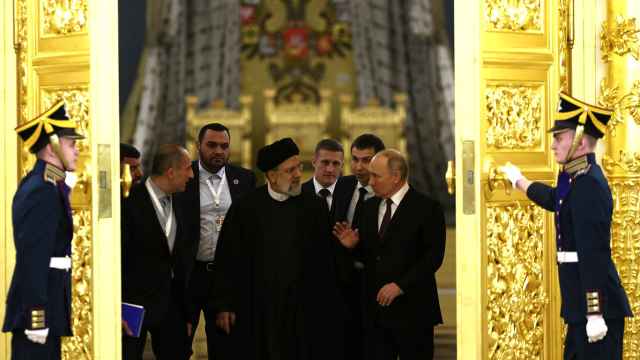A top advisor to Iran's Supreme Leader Ayatollah Ali Khamenei hailed his country's "strategic relationship" with Russia on Wednesday during a visit to Moscow, part of a diplomatic offensive by Tehran as it braces for renewed U.S. sanctions.
Ali Akbar Velayati, who is due to meet President Vladimir Putin, also took a swipe at U.S. President Donald Trump, saying his "unreliable" actions made Tehran's close ties with Moscow all the more necessary.
The United States pulled out of a multinational deal in May to lift sanctions against Iran in return for curbs to its nuclear program. Washington says it will reimpose sanctions and has told other countries to halt all imports of Iranian oil from Nov. 4 or face U.S. financial measures.
"The relationship between Iran and the Russian Federation is a strategic relationship and in recent years the collective bilaterial and regional relations have expanded," Iran's ISNA news agency quoted Velayati as saying on arrival in Moscow.
He said he would deliver messages to Putin from Iran's Supreme Leader and President Hassan Rouhani and that they would discuss the "very sensitive" global situation.
Velayati cited Russian and Iranian cooperation in Syria, where they both support President Bashar al-Assad's forces in the seven-year Syrian civil war against what the Iranian official called "terrorism and its sponsors".
"Only a strategic and long-term relationship [with Russia] can continue this cooperation," said Velayati, who was also due to meet Russian Energy Minister Alexander Novak in Moscow.
Velayati, who is also expected to visit China in the near future, described Trump as an "unreliable individual... with relation to international law who necessitates more and more cooperation [between Iran and Russia]."
Hossein Amir-Abdollahian, a special adviser on international affairs to the speaker of Iran's parliament, said Velayati was scheduled to meet Putin on Thursday and would discuss ways to confront U.S. policy in the Middle East region.
"A frank dialogue with Russian leaders at the highest levels and exchanging views can lead to the views of the two countries moving closer and help in finding ways to increase stability and security in the region and confront the improper policies of America and its allies," Amir-Abdollahian, a former deputy foreign minister, said on Wednesday, according to state media.
Nuclear Deal
A U.S. State Department official said this month that Washington's goal was to get as many countries as possible down to zero Iranian oil imports. However, Secretary of State Mike Pompeo said on Tuesday the United States might consider requests from some countries to be exempted from sanctions.
Apart from the United States, the other signatories to the 2015 Iran nuclear deal — Russia, China, Germany, France and Britain — have said they still support the accord.
But European firms are reluctant to risk far-reaching U.S. financial penalties they would face for doing business in Iran.
Israeli Prime Minister Benjamin Netanyahu, who views Iran as Israel's arch-enemy and strongly backs Trump's decision to quit the nuclear deal, was also visiting Moscow on Wednesday.
Asked about Netanyahu's visit, Velayati said: "His presence or absence in Russia has no effect on our strategic mission in Moscow."
Israel is concerned that Iran is establishing a military presence in neighbouring Syria and it has attacked Iranian targets there.
Amir-Abollahian said Netanyahu was likely to ask for Putin's help to push Iran's military advisers out of Syria but added that this was an issue that could only be decided between Tehran and Damascus.
Trump and Putin are expected to discuss Iran's regional role and the Syrian conflict at a summit in Helsinki next Monday.
A Message from The Moscow Times:
Dear readers,
We are facing unprecedented challenges. Russia's Prosecutor General's Office has designated The Moscow Times as an "undesirable" organization, criminalizing our work and putting our staff at risk of prosecution. This follows our earlier unjust labeling as a "foreign agent."
These actions are direct attempts to silence independent journalism in Russia. The authorities claim our work "discredits the decisions of the Russian leadership." We see things differently: we strive to provide accurate, unbiased reporting on Russia.
We, the journalists of The Moscow Times, refuse to be silenced. But to continue our work, we need your help.
Your support, no matter how small, makes a world of difference. If you can, please support us monthly starting from just $2. It's quick to set up, and every contribution makes a significant impact.
By supporting The Moscow Times, you're defending open, independent journalism in the face of repression. Thank you for standing with us.
Remind me later.



